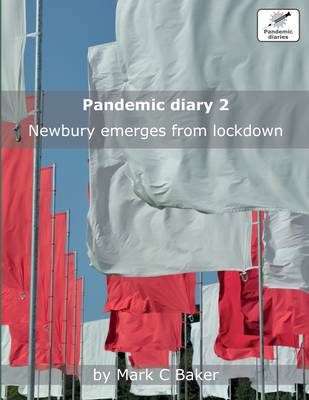
- Retrait gratuit dans votre magasin Club
- 7.000.000 titres dans notre catalogue
- Payer en toute sécurité
- Toujours un magasin près de chez vous
- Retrait gratuit dans votre magasin Club
- 7.000.0000 titres dans notre catalogue
- Payer en toute sécurité
- Toujours un magasin près de chez vous
Description
On 31 December 2019 the World Health Organisation received its first report that a pneumonia of unknown cause had been detected in the Chinese city of Wuhan. By 11 March 2020 the outbreak of what was now known as COVID-19 had been declared a pandemic. Towns, regions and entire countries started living in states of semi-lockdown or quarantine, in a desperate attempt to prevent public health systems from being overwhelmed.
On 20 March the UK government ordered schools, pubs, restaurants, gyms and other social venues to close. Three days later the prime minister, Boris Johnson, announced that people should only leave their homes to buy food, exercise once per day or go to work, but only if they were unable to work from home. The country went from normality to lockdown in a matter of days. Around the world, billions were affected.
"Pandemic diary 2" is a photo-journal that picks up the story from the end of "Pandemic diary" and covers the period from 19/06/2020 to 17/09/2020. The initial restrictions were gradually relaxed, with non-essential shops, personal services (such as barbers and hairdressers) and some leisure facilities re-opening. The challenge now was to see how much "normality" could be restored, without sending infection rates soaring once more. It is one person's story, living in a medium-sized English town. It covers the local area in detail, but also some of the key national and international issues that were unfolding during this unprecedented time. Just one story, but what a story!
This is the second book in the Pandemic diary series, featuring many photographs taken along the local stretch of the Kennet and Avon Canal, as well as in and around Newbury. It follows on from Pandemic diary: Newbury in a time of crisis. Also by the same author, the UK Canals series, which includes, 1: The Kennet and Avon Canal in pictures, 2: Wildlife of the Kennet and Avon Canal, 3: Weird and wonderful canal photographs, 4: The Erewash Canal in context. The author has also written Living in a digital world: Demystifying technology.
For more details on books by Mark C Baker, see educationvision.co.uk/books.htmlSpécifications
Parties prenantes
- Auteur(s) :
- Editeur:
Contenu
- Nombre de pages :
- 140
- Langue:
- Anglais
- Collection :
- Tome:
- n° 2
Caractéristiques
- EAN:
- 9798576477791
- Date de parution :
- 29-01-21
- Format:
- Livre broché
- Format numérique:
- Trade paperback (VS)
- Dimensions :
- 216 mm x 279 mm
- Poids :
- 467 g

Les avis
Nous publions uniquement les avis qui respectent les conditions requises. Consultez nos conditions pour les avis.






